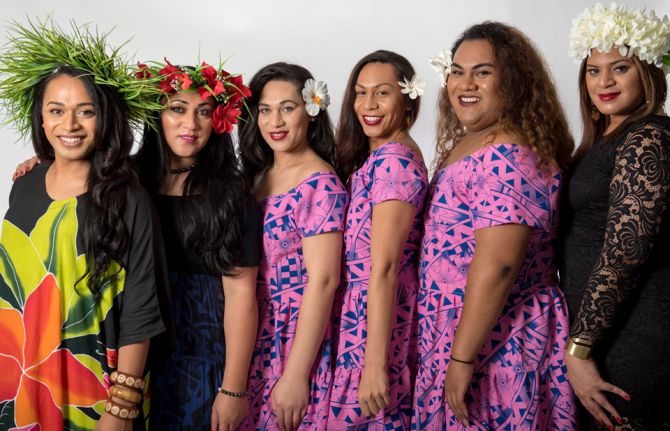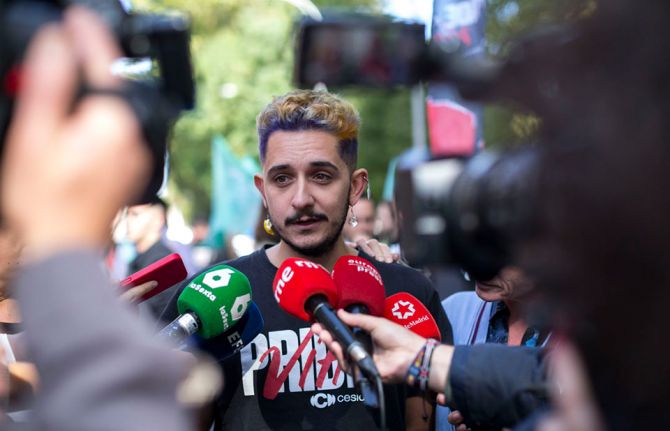

Feature Story
Championing human rights and health
25 September 2017
25 September 2017 25 September 2017Phylesha Brown-Acton, from the Asia–Pacific Transgender Network, is a champion for the rights of sexual minorities. A volunteer for the Pacific Sexual Diversity Network, she also established F’INE (Family, Identity, Navigate & Equality), which supports Pacific lesbian, gay, bisexual, transgender and intersex people and their families.
“Experiencing discrimination on a daily basis, seeing it happen to my peers and some of my family members because they were related to me, made me think hard about if I wanted to continue living in a society that defines and restricts me or if I was actually going to do something about it. I decided on the latter, and that is why I became a lesbian, gay, bisexual, transgender and intersex rights activist,” Ms Brown-Acton said.
In her work, she has seen the impact that discrimination in health-care settings can have. “I assisted four transgender women in understanding their health needs. All of them told me that they had not been to a doctor for several years, because every time they went to see a health-care provider the experiences were bad. So instead of going to see a doctor when not feeling well, they were medicating themselves at home with over-the-counter medicines. All of those women were later diagnosed with type 2 diabetes. Their diagnosis was delayed because of discrimination. The same happens to many people living with HIV.”
Despite the persistent stigma and discrimination that transgender people experience, Ms Brown-Acton believes that discrimination in health-care settings can be overcome. “We need to remove bias in thinking and decision-making,” she said. “We need to work with health institutions and practitioners so that they can hear and understand the discriminatory experiences of transgender people.”
Ms Brown-Acton emphasized the importance of including zero discrimination training in medical school curriculums, pointing out that the Asia–Pacific Transgender Network has developed a Blueprint for Action, a comprehensive, accessible transgender health reference document.
Ms Brown-Acton is adamant that people who experience discrimination—including transgender people, people living with HIV, people with disabilities and indigenous communities—must be at the table when decisions are being made. “Transgender people have been shut out many times before. We have been strategic about getting into the meeting rooms, but there is still a lot of work to be done. We must be heard in those meeting rooms, not silenced or ignored.”
Ms Brown-Actor will be speaking at the Human Rights Council Social Forum, which is being held from 2 to 4 October, about the promotion and protection of human rights in the context of HIV and other communicable diseases. To hear more from her and other human rights activists, register to participate in the Human Rights Council Social Forum at https://reg.unog.ch/event/6958/.



